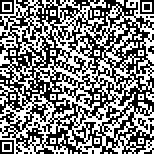| 杨闪闪,赵夙雅,李韬芝,等.抗肿瘤分子靶向药物导致手足皮肤反应的研究进展[J].肿瘤学杂志,2022,28(7):596-601. |
| 抗肿瘤分子靶向药物导致手足皮肤反应的研究进展 |
| Research Progress on Hand-foot Skin Reaction Caused by Anti-tumor Molecular Targeted Drugs |
| 投稿时间:2021-10-20 |
| DOI:10.11735/j.issn.1671-170X.2022.07.B012 |
|
 |
| 中文关键词: 靶向药物 手足皮肤反应 研究进展 |
| 英文关键词:targeted drugs hand-foot skin reaction research progress |
| 基金项目:首都临床特色应用研究与成果推广(Z171100001017207);国家“十二五”科技支撑计划项目(2015BAI04B07);国家自然科学基金(821714134) |
|
| 摘要点击次数: 855 |
| 全文下载次数: 308 |
| 中文摘要: |
| 摘 要:分子靶向治疗是针对肿瘤特异位点的治疗方法,旨在抑制肿瘤增殖、生长和存活。靶向药物治疗较常规化疗有更好的针对性和安全性;但是,靶向治疗会产生较多的皮肤不良事件,其中以手足皮肤反应最为常见。手足皮肤反应虽然不危及生命,但可导致靶向药物剂量改变、中断或终止治疗,从而限制靶向药物的抗肿瘤作用。全文总结了有关靶向药物导致手足皮肤反应的流行病学、发病机制、临床表现、预后以及防治方法。 |
| 英文摘要: |
| Abstract: Molecular targeted therapy inhibits tumor proliferation and growth through targeting specific sites of tumor cells, which generally has better efficacy and safety than conventional chemotherapy. However, targeted therapy may cause skin adverse events, among which hand-foot skin reaction(HFSR) is the most common one. Although HFSR is not life-threatening, it may lead to dose change, interruption or termination of targeted drugs, thereby limiting the anti-tumor effect of targeted drugs. This article summarizes the epidemiology, pathogenesis, clinical manifestation, prognostic significance and prevention methods of HFSR induced by targeted drugs. |
|
在线阅读
查看全文 查看/发表评论 下载PDF阅读器 |
|
|
|